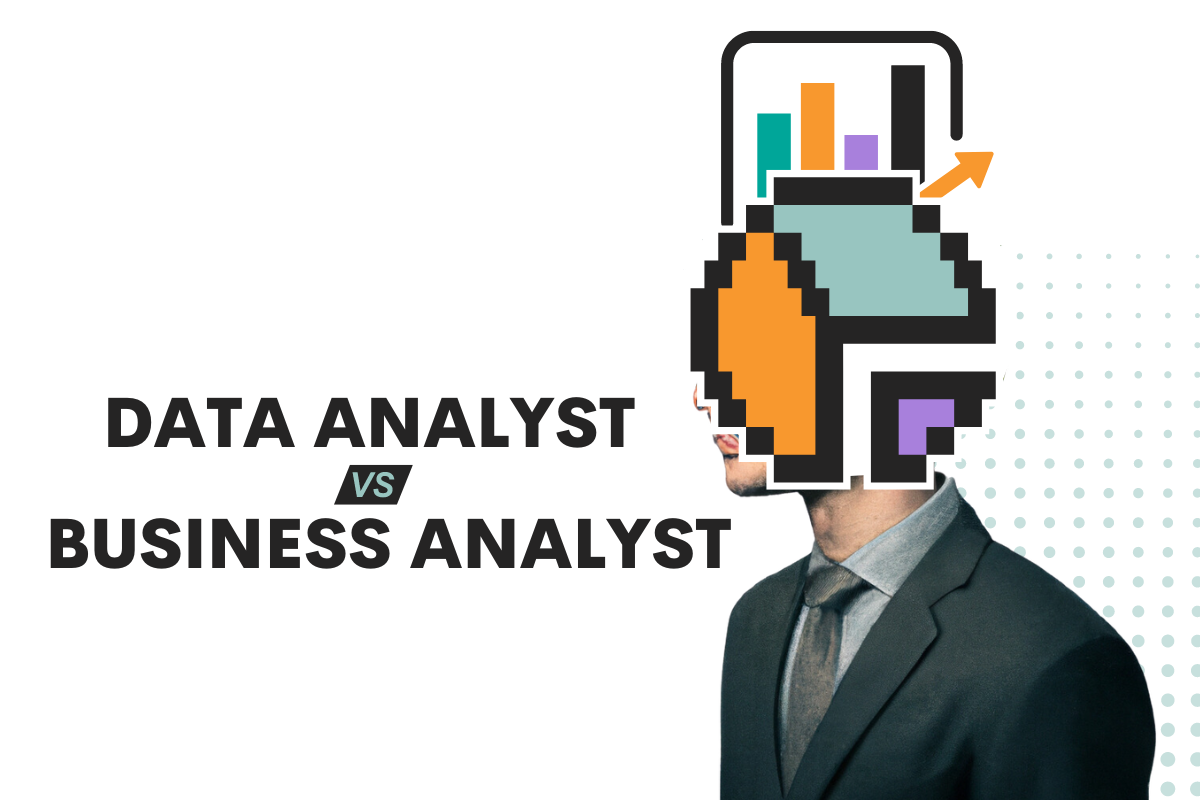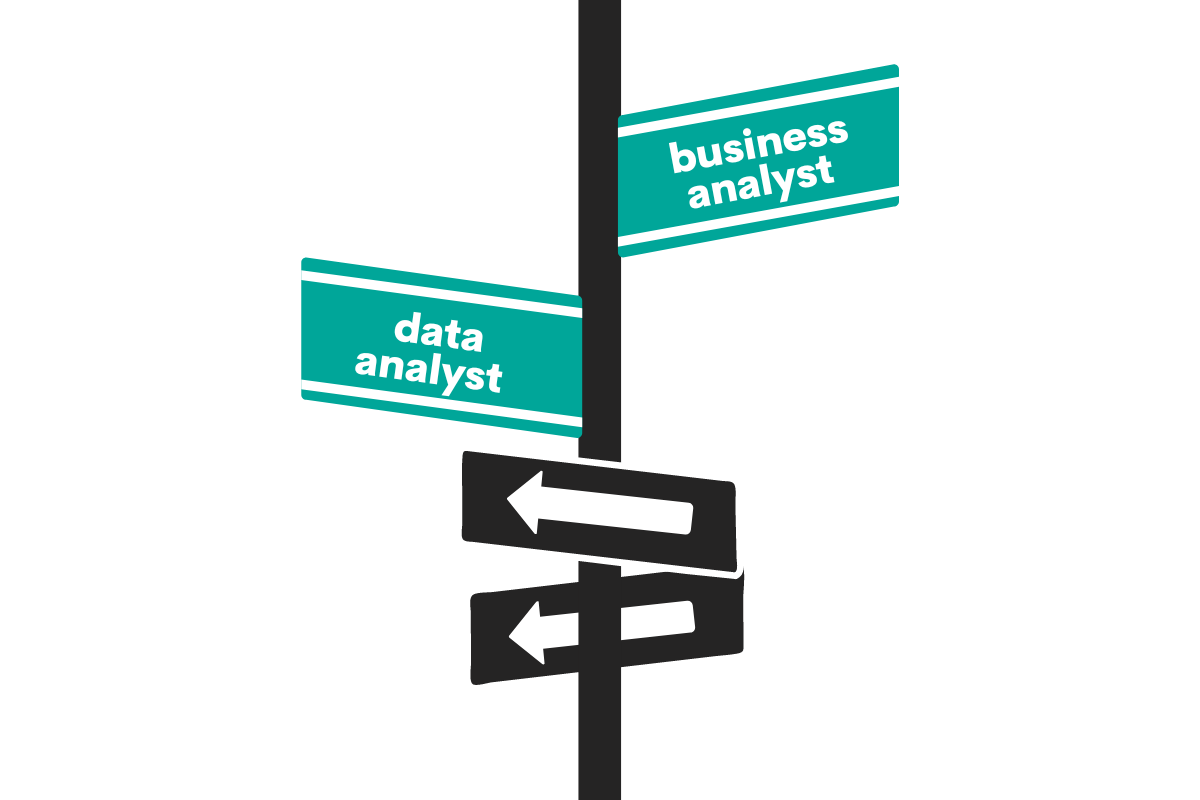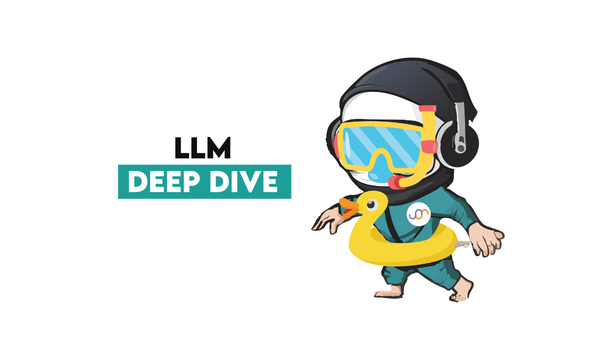Data Analyst vs Business Analyst: Roles and Career Paths

Categories:
 Written by:
Written by:Nathan Rosidi
Data Analyst vs Business Analyst: The difference between two careers data analyst and business analyst is important to understand.
Are you confused whether you want to become a data analyst or a business analyst?
The difference between two careers as either a data analyst or business analyst is important to understand. There is often confusion about these two careers. When it comes to choosing a professional career related to data analysis, you may find yourself confused between a data analyst and a business analyst. If both roles relate to working with data then what is the difference between data analyst and business analyst?
Data Analyst vs Business Analyst
Data analysts are responsible for analyzing datasets to determine how to use data to make more informed decisions. Business analysts are focused on identifying and analyzing various information to make data-driven business decisions and to solve unformed business problems.
Did I just say the same thing but in a different way? Read below for more information.
Role and Responsibilities of a Data Analyst
Data analytics is the process of collecting, analyzing, modeling and transforming data to get useful information and to reach meaningful conclusions. Organization in all industries can benefit from the insights that data analysts bring.
This role is in high demand as every business collects data and want to translate those data points into making better decisions.
Responsibilities of a Data Analyst
- Fixing coding and data-related problems
- Data mining, recognizing, validation and cleansing
- Increasing efficiency and automation of processes
- Using statistical tools to interpret data sets
- Tracking KPIs
- Responsibility of data quality
- Developing data dashboards, graphs and visualisations that can effectively and easily communicate situations, trends, and predictions
- Preparing documentation that guide stakeholders and colleagues through their process
Role and Responsibilities of a Business Analyst
A business analyst helps businesses in improving their processes, products, and services through the data analysis process. Business analysts use data analytics for assessing processes, determining the requirements, and for delivering data-driven recommendations.
Business analysts create and develop new models that support business decisions. They work closely with the IT team and financial reporting to develop strategies and initiate things. They bring organizational changes that leaders and stakeholders want to see.
Responsibilities of a Business Analyst
- Analyzing business and outlining the problems
- Find opportunity and solutions for the business
- Planning, monitoring, budgeting, and forecasting
- Preparing documentation to help refine the problems the business is trying to solve
- Determining improvement in existing business processes
- Designing and implementing new features
- Strategic planning and pricing
- Reporting to stakeholders
Business analysts are the ones who communicate with stakeholders and elicit, analyze, and validate the required information and policies. This position requires hard skills as well as soft skills. They need to possess the skill of pulling, analyzing, and reporting data trends, and should also be able to apply this information to the business. They are responsible for impact.
Career as a Data Analyst and Business Analyst

How do you choose between a career as a data analyst and business analyst? Which one is the right career path for you: data analyst vs business analyst? You will need four major factors to get your answers:
- Education or background
- Skills
- Interests
- Career Path
- Salary Comparison
1. Data Analyst vs Business Analyst: Education or Background
Data analysts and business analysts may come from different backgrounds. Business analysts usually earn a business-focused undergraduate degree such as business administration or finance. On the other hand, data analysts usually earn a degree from STEM category with a background in math, programming, modeling, databases, and predictive analysis.
2. Data Analyst vs Business Analyst: Required Skills
Business analysts are the ones who require skills like data research, analytical skills, critical data identification, coding (SQL and nowadays python) skills, project management, and lastly communication skills.
On the other hand, data analysts work with large data sets to identify trends and prepare the visual presentation. They are more numbers-oriented and process driven. They would need to have the essential skills like analytical skills, data mining techniques, machine learning, emerging technologies, data frameworks, SQL, Python or R, Tableau, modeling and math.
3. Data Analyst vs Business Analyst: Interests
Do you enjoy working in the corporate world and have an interest in finding and implementing ways to solve the problems? Are you a good communicator? You might enjoy being a business analyst.
Are you interested in extracting data from complex and disparate sources? Do you want to get really good at statisitcs and programming? You might enjoy a career as a data analyst.
4. Data Analyst vs Business Analyst: Career Path
Business analysts and data analysts are both analytical roles, but they differ in their focus and responsibilities. Data analysts have a couple of potential career paths to choose from, depending on their interests and expertise.
The first path entails advancing from a data analyst role to a data administrator, data modeler, software engineer, data engineer, data architect, data scientist, and ultimately becoming a machine learning (ML) engineer or C&I research scientist.
The second path involves transitioning from a data analyst to a statistician, then a business intelligence (BI) developer, followed by a marketing specialist, and finally becoming a business analyst or data scientist. Alternatively, a third pathway exists for business analysts, where they can progress toward a career in data science or quantitative analysis.
Ultimately, each of these pathways presents unique opportunities and requires specific skill sets, allowing data analysts to pursue careers that align with their interests and ambitions.
For business analysts, the career path often begins with a focus on improving business processes, developing strategies, and enhancing operations. Entry-level positions may include junior business analyst or business systems analyst, with opportunities to progress to more senior roles such as project managers, product owners, or enterprise architects.
As they gain experience, business analysts may also specialize in particular areas, such as financial analysis, marketing, or supply chain management. Alternatively, they may transition to a role as a process improvement analyst, IT business analyst, or requirements analyst.
5. Data Analyst vs Business Analyst: Salary Comparison
The median annual salary for a typical data analyst is approximately $74,598, but this figure can fluctuate based on the organization, job title, and geographic location. Comparatively, a data business analyst usually receives a higher salary, averaging around $83,512 per year. However, the individual's skill set, qualifications, company reputation, and location also contribute to the variation in pay.
Although the U.S. Bureau of Labor Statistics does not provide precise information on business analysts, it anticipates a rise of 31% in the employment of management analysts from 2021 to 2031. On average, it is estimated that around 4,100 job vacancies will become available annually for mathematicians and statisticians over the span of a decade. In conclusion, the compensation for a business analyst versus a data analyst is subject to change.
If you want a breakdown of the Data Analyst salary and job market, check out our post "Data Analyst Salary".
Which career path is the right for you: Data analyst or business analyst?

Both positions are currently sought-after and offer good remuneration. However, the most suitable option for you will depend on your particular interests, abilities, and professional objectives. If you have a greater inclination towards mathematics and statistics, a data analyst role may be a suitable choice. On the other hand, if you excel in solving business-related problems, then pursuing a career in business analytics could be a better option for you.
Data Analyst vs Business Analyst: Final Comparison
Since data analyst and business analyst both work with data, they have similar skill sets, at least in the beginner of the career. The pros and cons are subjective and sometimes as a young professional, you don't know until you try it. Because the skill sets are similar, switching from one path to another isn't too hard. But it gets harder over time, especially mid-to-late career when experience and domain knowledge can be more valuable than hard technical skills.
Share


